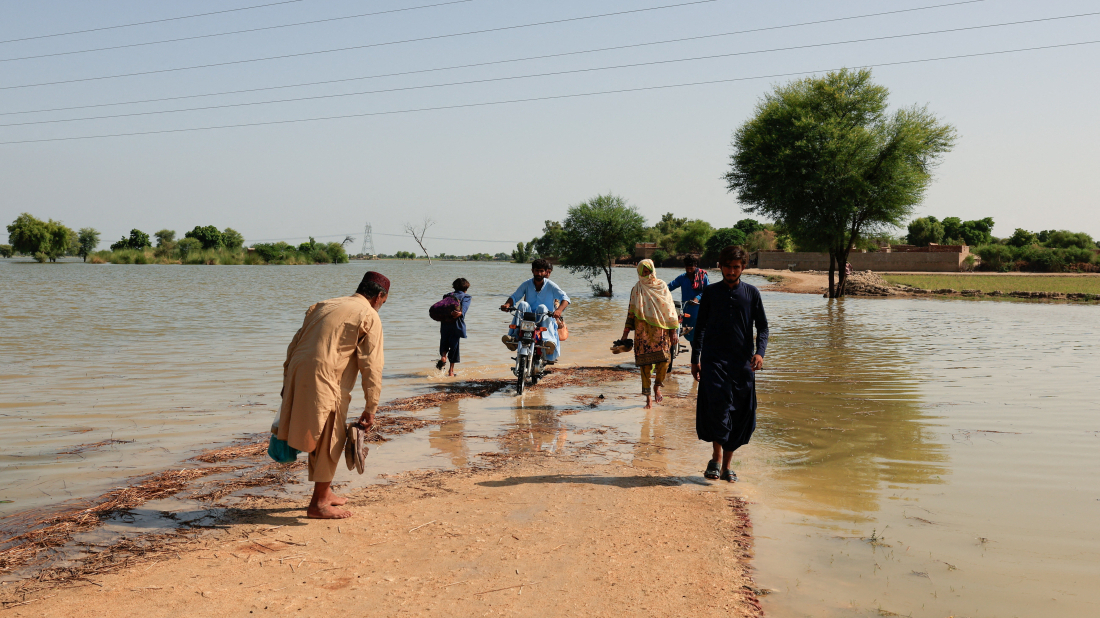Punch, a baby monkey abandoned by its mother, goes viral after befriending a stuffed orangutan
A seven-month-old Japanese macaque has captured global attention after forming an unusual but heart-warming bond with a stuffed orangutan toy followin...

Massive floods in Pakistan have struck both the rural heartland and industrial centres for the first time in decades, causing billions of dollars in damage.
The government had been optimistic about 2026, pencilling in 4.2% growth on the back of a rebound in farming and manufacturing after the economy was stabilised under a $7 billion International Monetary Fund bailout.
Instead, record monsoon rain since late June, amplified by dam releases from India, have submerged large swathes of Punjab and Sindh, the two most populous and economically vital provinces.
While waters have yet to recede in many districts, officials and analysts warn the hit could be deeper than in 2022, when a third of the country lay under water, due to dual shocks to agriculture and manufacturing.
In Punjab, Pakistan's rice, cotton and maize engine, 1.8 million acres of farmland have been inundated, according to the provincial disaster management agency.
"About 50% of rice, and 60% of cotton and maize crops have been damaged," said Khalid Bath, chairman of the Pakistan Farmers Association.
He estimates at least a tenth of the country's crops are destroyed, with vegetable losses topping 90% in some districts.
The timing is perilous: Pakistan is about to sow wheat, the crop that provides nearly half of the country's caloric intake.
National reserves remain comfortable after a strong 2024 harvest, according to Crop Monitor, but the sowing window is at risk in fields still slick with silt and mud.
"Food insecurity is coming, not just higher prices," Khan warned.
Quentin Griffiths, co-founder of online fashion retailer ASOS, has died in Pattaya, Thailand, after falling from the 17th floor of a condominium on 9 February, Thai police confirmed.
Ukraine’s National Paralympic Committee has announced it will boycott the opening ceremony of the Milano Cortina 2026 Paralympics in Verona on 6 March, citing the International Paralympic Committee’s decision to allow some Russian and Belarusian athletes to compete under their national flags.
Eric Dane, the actor best known for his roles in 'Grey’s Anatomy' and 'Euphoria', died on Thursday, at the age of 53 after a battle with amyotrophic lateral sclerosis (ALS). His family confirmed his death after what they described as a “courageous battle” with ALS.
An Austrian climber has been convicted of gross negligent manslaughter after his girlfriend died from hypothermia while climbing Austria’s highest peak, the Grossglockner, in January 2025.
President Donald Trump said on Saturday (21 February) that he will raise temporary tariffs on nearly all U.S. imports from 10% to 15%, the maximum allowed under the law, after the Supreme Court struck down his previous tariff program.
Ukraine’s President Volodymyr Zelenskyy has approved new sanctions targeting Russian maritime operators, defence-linked companies and individuals connected to Moscow’s military and energy sectors, according to official decrees issued on Saturday.
Divers have recovered the bodies of seven Chinese tourists and a Russian driver after their minibus broke through the ice of Lake Baikal in Russia, authorities said.
A technical fault in the helium system of NASA’s next-generation moon rocket was announced on Saturday, ruling out the planned March launch window for the Artemis II mission.
President Donald Trump said on Saturday (21 February) that he will raise temporary tariffs on nearly all U.S. imports from 10% to 15%, the maximum allowed under the law, after the Supreme Court struck down his previous tariff program.
Germany's ruling conservatives on Saturday (21 February) passed a motion to ban social media use for under 14s and introduce more stringent digital verification checks for teenagers, building momentum for such limits in Germany and elsewhere in Europe.
You can download the AnewZ application from Play Store and the App Store.

What is your opinion on this topic?
Leave the first comment